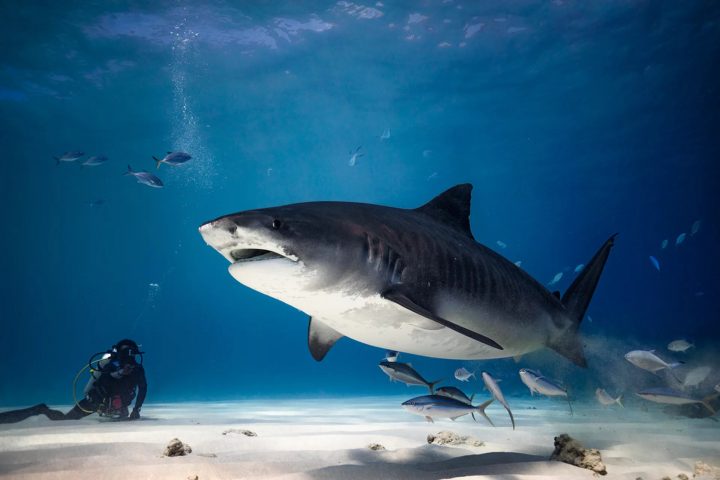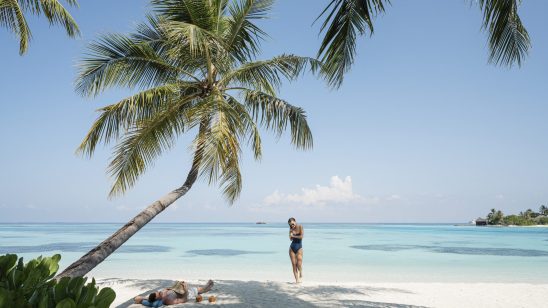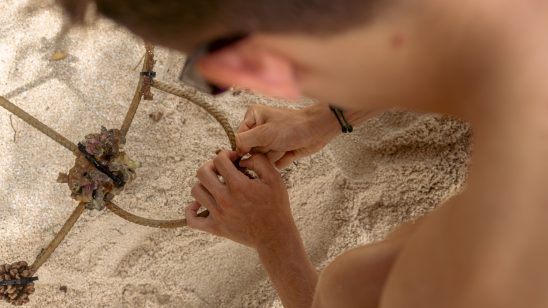
New tax on diving threatens growth of Fuvahmulah’s infant tourism
Fuvahmulah City Council has introduced a new tax on diving activities. This historical decision marks the first time that both locals and foreigners will be required to make an additional payment apart from the charges on the services provided by dive centres, for accessing the Maldivian waters.
While dive schools have been charging fees for their services, this additional tax has caused discontent among the dive schools based on the island. They argue that this move could hinder the flourishing tourism industry in Fuvahmulah.
The recently gazetted regulations by the council outline the following fees: locals, work permit holders, and student visa holders will be charged USD 20 per person for dive schools based in Fuvahmulah, while foreigners will face fees of USD 40 per person. Additionally, foreign vessels will incur charges of USD 200 per person, and dive schools from other atolls and safari vessels will be charged USD 55 per person.
Although these regulations came into effect upon publication, divers will only be subjected to the fees starting in September. Dive schools in Fuvahmulah, although expressing their concerns, have chosen to remain anonymous, hoping for a resolution to address their grievances. They perceive the council’s imposition of fees as an attempt to gain control over the diving sector and generate substantial revenue.
The owner of one dive school highlights the infancy of Fuvahmulah’s tourism industry and the lack of proper marketing. Expressing disappointment, he says, “While our businesses struggle to receive basic facilities, the council is imposing taxes on us without fulfilling our fundamental needs.”
The scarcity of harbour space is a pressing issue, and tourists are forced to disembark from the rough side of the port, risking their safety. Furthermore, no amenities, such as toilets or shaded areas, are available for tourists at the harbour. Despite diving and tourism becoming a major source of income for Fuvahmulah, the owner emphasises that cargo ships, safaris, and fishing boats receive preferential treatment over their vessels.
Whenever dive school owners approach the council regarding these challenges, their concerns are met with the council’s assertion that they require a budget to provide necessary amenities. The owner states, “We cannot discuss taxes when we lack even the most basic services.”
Dive school owners fear that the new fees will severely impact tourism in Fuvahmulah. They argue that since many foreigners are unaware of the diving opportunities in the region, imposing fees at this stage when substantial resources are being invested in advertising and promoting the destination is ill-timed. They suggest that fees should only be introduced once the destination gains popularity, and then, a higher amount, such as USD 100 per person, would be more appropriate.
During the low season, the number of tourists visiting the dive schools is minimal, with only 10-30 people per day. On some days, not a single person shows up. Dive centres in Fuvahmulah have refrained from imposing the substantial tax on divers, highlighting that the council has played an insignificant role in developing the sector. They claim that their individual efforts, such as creating brochures and self-funded advertising campaigns, have brought them to this stage. The council’s involvement has been limited to attending a dive show in Thailand with the assistance of dive schools.
Additionally, dive centres argue that the expensive domestic air tickets to Fuvahmulah, combined with the proposed additional fees, may deter visitors from choosing the island as their holiday destination. In contrast, other islands in the Maldives offer similar services without charging additional fees. They mention the example of ADh. Dhigurah, where no fees are levied, yet services are readily available.
Although entry fees may be justified for a protected island like Fuvahmulah, dive centre officials emphasise that they do not want to impose fees on locals. If taxes are introduced, they propose that the generated revenue should contribute to the island’s development and the diving industry. For instance, funds could be allocated to enhance the island’s nature park.
The council conducted a consultation meeting with dive school owners to discuss the fee structure, during which some centres suggested implementing an annual fee rather than charging per dive. Others proposed capping the fee at MVR 5-10 per person. However, the council’s decision to enforce the dive fee without further consultation has led to dissatisfaction among the dive centres.
The fees are set to be enforced from September, but dive centres are refusing to implement them, forcing the council to return to the negotiation table. With two months remaining for further deliberations, the outcome will undoubtedly shape the future of tourism in Fuvahmulah.
Featured photo: Extreme Dive Maldives







Pingback: New tax on diving threatens growth of Fuvahmulah’s infant tourism – Hotelier Maldives - The Business Gazette